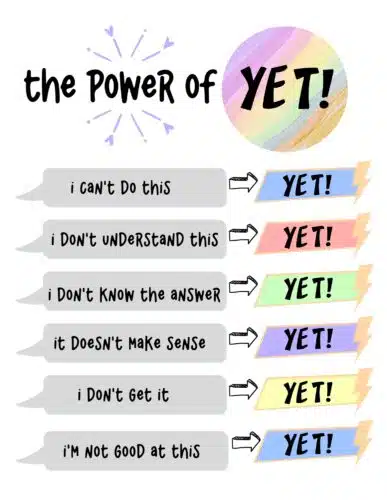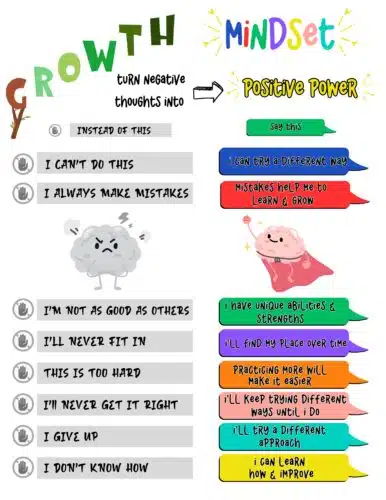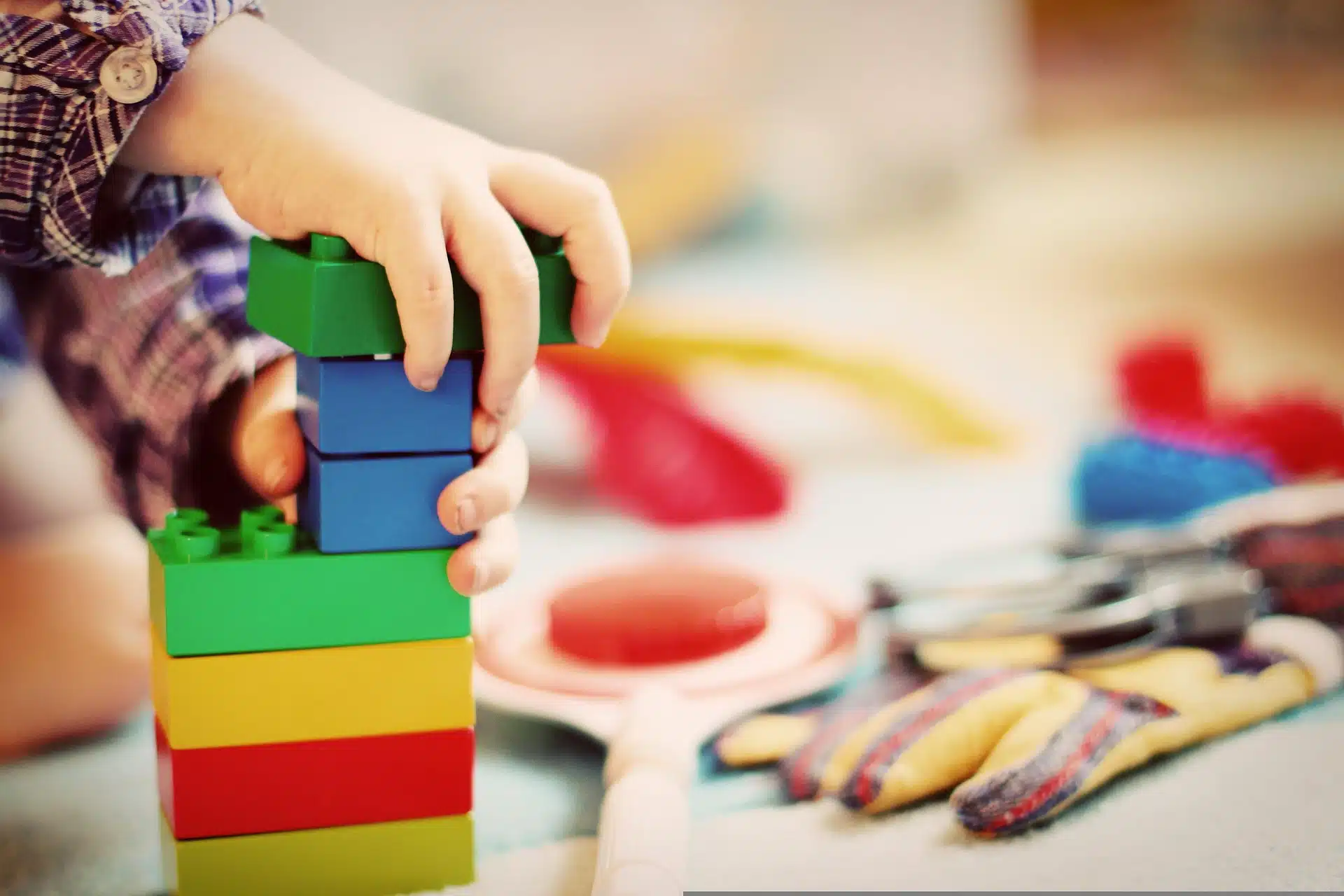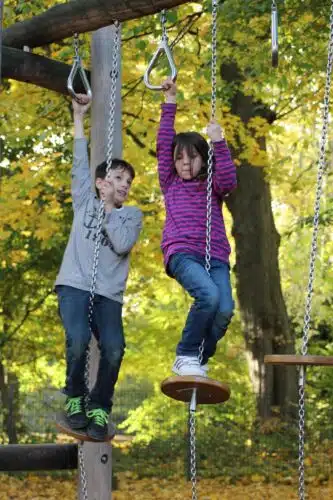A child’s ability to persist through challenges versus giving up easily often stems from growth mindset parenting – a simple yet powerful concept. My personal experience as a parent has shown me how this approach reshapes academic outcomes and builds remarkable resilience in children. Stanford psychologist Dr. Carol Dweck’s groundbreaking research shows children develop either a growth mindset, believing their abilities can improve with effort, or a fixed mindset, seeing their talents as unchangeable traits.
Research demonstrates that children with growth mindsets earn higher maths grades and enrol in more advanced classes. These children readily welcome new experiences, take risks, and learn from mistakes instead of avoiding them. The most fascinating aspect is how this mindset changes neurological responses and shapes how children process information about their successes and failures.
Parents can encourage a growth mindset by creating an environment where children embrace rather than fear challenges. Dr. Dweck’s 2006 book “Mindset: The New Psychology of Success” has helped countless parents watch their children develop greater resilience, better academic performance, and improved coping strategies. The simple act of praising the process instead of innate ability can shape mindset development for years.
This post offers practical strategies that help you encourage your child’s growth mindset. You’ll learn about adding “yet” to your vocabulary and creating daily habits that strengthen resilient thinking patterns.
Why Growth Mindset Matters in Everyday Parenting
A parent’s belief that abilities grow through effort changes everything about raising children.
A mother who believed in growth told me, “I stopped seeing my daughter’s struggles as problems and started seeing them as opportunities.” This change in thinking doesn’t just alter our viewpoint—it shapes our children’s futures.
How mindset shapes daily interactions
Your parenting mindset directly affects how you connect with your child each day. Studies show that parents who believe in growth with their preschool children compared to those with fixed mindsets spend more time on maths and literacy activities [1]. These parents also give better feedback on their children’s schoolwork.
Here’s what this looks like day to day:
If a child does poorly on a maths test, a growth-minded parent might say, “Let’s look at this together so we can learn from the questions you don’t understand yet.”
A parent with a fixed mindset might say instead, “It’s okay, you’re just not a maths person! I’m not a maths person either!” [2]
Words aren’t the only difference. Parents who believe in growth spend more time learning with their kids. The quality of these moments tends to be better, as they focus on effort rather than natural talent. This approach to praise makes a big difference—children whose parents praise effort on maths and reading tests do better than those praised for being smart [3].
Parents who believe in growth say things like “You worked hard!” instead of “Wow! You are smart!” [2] This simple change teaches kids that effort, not fixed talent, brings success.
Long-term benefits for emotional resilience
Growth mindset parenting builds strong emotional resilience. Research shows that kids who hear praise for their efforts rather than their traits become more confident and know how to push through challenges [2]. They try new things more often and see failures as learning chances.
Brain research reveals something amazing: a mother’s growth mindset can protect her baby’s brain development from high stress [4]. Brain scans show that babies of stressed mums with fixed mindsets had concerning brain activity changes, while babies of equally stressed mums with growth mindsets stayed healthy [5].
This protection continues as kids grow. Children whose parents started with fixed mindsets but learnt about growth mindset showed faster vocabulary growth from 10–18 months. They also had better speaking skills at 18 months than the control group [1].
The emotional benefits grow over time. Growth mindset helps reduce anxiety and depression while helping kids handle tough times better [4]. Kids learn that setbacks help them grow instead of stopping them, which builds incredible resilience.
Kids with growth mindsets also build better relationships and communicate well. They work better with others, help their friends more often, and welcome feedback [6]. While fixed-mindset kids might avoid challenges to protect their image, growth-minded children see challenges as chances to learn.
Starting early with this approach prepares kids for both school success and life’s challenges.
5 Simple Ways to Build Growth Mindset at Home
Parents don’t need expensive tools or special training to help their kids develop a growth mindset. Regular activities at home give perfect chances to build this powerful mindset. Simple changes to daily routines can create an environment where growth mindset thrives naturally.
1. Turn chores into learning opportunities
Kids learn valuable growth mindset traits through everyday household tasks. Research shows that they build stronger relationships with friends and family. They also do better academically compared to kids who don’t help around the house early on children who participate in chores from an early age [7].
Start by showing kids how chores let them help the family instead of using them as punishment. Kids feel successful and needed when they help set the table or prepare meals. These feelings boost their self-esteem [8].
Marty Rossmann, Emeritus Associate Professor of Family Education, discovered that kids who help with household tasks early gain lifelong skills. They become more responsible, competent and self-reliant [9].
Here are three growth mindset elements to get you started in thinking about chores:
- A willingness to learn: Ask your kids which tasks they struggle with most. Show them the right way and let them watch you do it [10].
- Learning from feedback: Tell them you’ll give feedback after they finish. Mix positive comments with helpful tips for improvement [10].
- Building perseverance: Let kids work through small frustrations before stepping in. Give specific praise for their determination [10].
A 75-year Harvard study found that kids with chores grew into more independent adults. [8]. Chores teach problem-solving, responsibility, and time management – everything needed for a growth mindset.
2. Use books and stories to spark discussion
Books are a great way to get kids excited about growth mindset ideas. Stories about characters who succeed through hard work can inspire kids to adopt similar attitudes.
Young readers love books like “The Girl Who Never Made Mistakes” and “The Most Magnificent Thing.” These stories show how mistakes help us learn and grow [11]. “Rosie Revere, Engineer” teaches that failure is just the first step toward success. “After the Fall” shows Humpty Dumpty beating his fears after his famous accident [11].
Reading time becomes more meaningful with questions like:
- “What did this character learn today?”
- “When did they improve? How did it feel?”
- “What strengths helped them solve the problem?”
Story time turns into an interactive growth mindset lesson. Studies show that growth mindset questions help kids reflect and think deeper [12]. These talks help children see how intelligence and abilities grow when they tackle challenges, use smart strategies, and keep trying [13].
Help kids connect stories to their lives by asking about similar challenges they’ve faced. Talk about what they might do differently in the character’s place. This helps them apply growth mindset ideas to their own experiences.
 3. The Power of Language: What to Say and What to Avoid
3. The Power of Language: What to Say and What to Avoid
Our words leave lasting imprints on children’s minds – way beyond what most parents might think. The language we use doesn’t just pass on our thoughts. It creates neural pathways in our kids’ brains that shape how they handle life’s challenges. As a parent who practices growth mindset principles, I found that tweaking just a few everyday phrases can reshape how children see their own potential.
Why is the word ‘Yet’ powerful in developing a growth mindset?
“Yet” – this tiny three-letter word might be your most powerful tool to encourage resilience in kids. A child who says “I can’t do this” can transform that permanent roadblock into a temporary challenge by adding “yet” at the end: “I can’t do this… yet.”
The magic of “yet” comes from its dual role. It accepts where kids are now while showing them a path forward. This simple addition tells children their current struggles are just stepping stones, not permanent barriers. “Yet” works like a mental bridge between today’s difficulties and tomorrow’s achievements, especially with kids who tend to think their abilities are fixed.
My child’s maths struggles showed me this firsthand. They used to say “I’m not good at this!” I kept responding with “You’re not good at this – yet.” Soon enough, their frustration turned into determination. Teachers notice that kids who use “yet” stick with tough tasks longer and try new ways to solve problems more often.
 Examples of growth mindset phrases for kids
Examples of growth mindset phrases for kids
Growth mindset thinking needs more than just “yet.” Here are some better ways to replace fixed mindset language:
- Instead of “You’re so smart!” try “You worked really hard on that!”
- Rather than “Don’t worry, I’ll do it,” say “Try another strategy.”
- Replace “This is too difficult for you” with “This may take some time to learn.”
- Instead of “Why do you always get this wrong?” ask “What can we learn from this mistake?”
- Rather than “You can’t because you don’t know how,” try “You can’t because you don’t know how… yet.”
The best phrases highlight effort, strategies, and learning instead of natural talent. They show kids that brainpower and skills grow through practice and determination. Simple comments like “That feeling of algebra being hard is the feeling of your brain developing” connect struggle with growth naturally.
Your child’s age doesn’t matter. These language adjustments create a space where challenges become stepping stones, not roadblocks. Growth mindset language, backed by steady encouragement, helps kids believe they can expand their abilities through dedicated effort.
4. Helping Kids Handle Failure and Frustration
Failure and frustration shape childhood and teach resilience. Parents who practice growth mindset parenting can turn disappointments into learning experiences by guiding their children mindfully through tough moments.
Teaching emotional regulation through setbacks
Children develop emotional regulation skills differently. Their progress depends on temperament, genetics, and environment. All the same, parents make a huge difference in helping children handle big feelings during setbacks. Children who learn to deal with frustration tend to perform better in school and build stronger relationships.
Small failures help build essential coping skills in children. Studies show that shielding children from failure reduces their resilience and ability to face future challenges. Rather than jumping in to rescue your child:
- Confirm their emotions: “I see you’re really disappointed”
- Let them feel frustrated briefly before offering support
- Show them how to stay calm during your own setbacks
Your conversations about emotional regulation work best when your child feels calm, not during meltdowns. Role-playing helps strengthen their “emotional regulation muscles” with regular practice.
Reframing mistakes as learning moments
The way children think about their mistakes substantially affects how they handle them now and later. Their brains actually learn better from mistakes with a constructive approach.
Questions like “What did you learn?” and “What might you do differently next time?” help your child find valuable lessons instead of feeling defined by failures.
Sharing your own mistakes openly teaches children that errors lead to growth opportunities. To cite an instance, if your child fails a test, you might tell them about a time you failed and the strategies that helped you improve.
Children who see failure as feedback rather than judgement develop lifelong learning resilience. The point isn’t to celebrate failure but to make it less scary by treating it as a natural step toward growth.
5. Creating a Growth Mindset Family Culture
A family culture that embraces growth mindset becomes part of your home’s everyday life, not just occasional activities. Your home environment plays a crucial role in how your children see challenges and handle setbacks. This makes your family culture a powerful way to raise resilient kids.
Daily habits that reinforce growth thinking
Start by creating regular reflection routines where everyone shares something new they learned or a challenge they conquered. These talks show that learning never stops. Dinnertime or bedtime works great to ask questions like “What did you learn today?” or “When did you make a wise choice?” or “What went well today?”
Family mantras can strengthen growth principles naturally. Simple phrases like “We are a family of learners” or “Everybody is learning!” build a shared identity focused on growth. A gentle reminder that “The goal isn’t perfection; the goal is learning” helps when someone makes a mistake.
Your personal examples of growth mindset leave a lasting mark. Kids naturally copy their parents’ behaviour when they see them take on challenges and push through tough times. One parent shared, “It’s really sweet because my kids have said our wisdom phrases back to me when I’d lost sight of grace.”
Celebrating effort as a family value
The way children tackle challenges changes when you focus on effort instead of results. You need to be thoughtful about how you celebrate effort. Skip saying “You’re so smart!” and try something specific like “You worked really hard on figuring out that maths problem!”
A “Glow and Grow” practice helps family members regularly share:
- “Glow” side: Recent accomplishments and the efforts behind them
- “Grow” side: Opportunities they’re working toward
Celebrating achievements builds confidence and self-worth when you focus on progress rather than perfection. This teaches children that hard work and dedication lead to growth. They end up becoming resilient, determined individuals.
One Last Thought to Grow On
A parent’s approach to raising resilient children ended up depending on the mindset we develop. Our trip learning about growth mindset parenting has shown the impact of our language choices, daily interactions, and responses to failure. Children with growth mindsets excel academically and build emotional resilience that benefits them lifelong.
The research reveals how available these principles are to everyone. You don’t need special training or costly resources to promote a growth mindset at home. Small changes make big differences in how children view challenges. Adding “Yet” to statements of inability or turning house chores into learning chances creates lasting impact.
Children of parents who accept these ideas learn from their failures instead of being defined by them. This fundamental change takes time. Your words, actions, and family culture must consistently reinforce a growth mindset.
Science proves that children with growth mindsets see life differently. They embrace healthy risks and work through difficulties. They see setbacks as temporary stepping stones rather than permanent limitations. These traits prepare them to handle academic and life challenges with confidence.
Growth mindset principles change parents too. We become patient and focus on the process rather than seeking perfection. This helps us guide our children through tough times without taking away valuable learning experiences.
Of course, some days make it hard to practice these principles. Note that your growth mindset development shows your children exactly what you want them to learn – skills improve through commitment and challenges make us stronger.
FAQs
Q1. What is a growth mindset and why is it important for children?
A growth mindset is the belief that abilities can be developed through effort and learning. It’s important for children because it helps them embrace challenges, persist through difficulties, and view failures as opportunities for growth rather than permanent limitations.
Q2. How can parents encourage a growth mindset at home?
Parents can encourage a growth mindset by praising effort rather than innate ability, using growth-oriented language like adding “yet” to statements of inability, turning chores into learning opportunities, and discussing characters in books who overcome challenges through persistence.
Q3. What role does language play in developing a growth mindset?
Language is crucial in shaping a child’s mindset. Using phrases that focus on effort, strategies, and learning rather than fixed traits can help children develop a growth mindset. For example, saying “You worked really hard on that!” instead of “You’re so smart!” emphasizes the value of effort.
Q4. How can parents help children handle failure and frustration?
Parents can help by allowing children to experience small failures, validating their emotions, and guiding them to reframe mistakes as learning opportunities. Asking questions like “What did you learn?” and “What might you do differently next time?” can help children extract valuable lessons from setbacks.
Q5. What are some daily habits that reinforce growth mindset thinking?
Daily habits that reinforce growth mindset thinking include regular family reflections on new learnings or challenges overcome, adopting family mantras that emphasize growth, and celebrating specific efforts rather than outcomes. Creating a “Glow and Grow” practice where family members share recent accomplishments and areas for improvement can also be effective.
How do you help your child bounce back from challenges, and what’s worked best for your family?
I would love to hear your comments and thoughts…And if you liked the post, feel free to share!
Peace & blessings
Teresa



